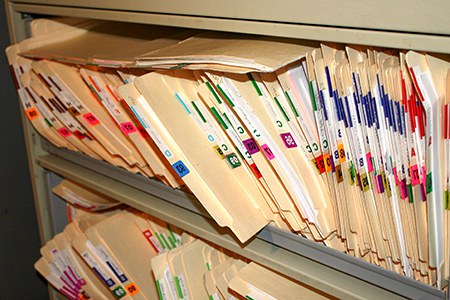Lessons from our inquiry work: The importance of record-keeping
 In our inquiry work, we look at many different situations where public money has been spent and resources have been used.
In our inquiry work, we look at many different situations where public money has been spent and resources have been used.
No two set of facts are the same. However, we see some themes pop up more than others. These include questions about how a procurement was carried out, whether a conflict of interest was managed well, the effects of a decision made at speed, and whether sensitive expenditure was identified and properly considered.
In this blog series we'll be sharing what we have seen and learned through our work, including what could have been done differently and lessons for improvement. We’ll share some lessons and practical considerations that might help public organisations avoid the common pitfalls we see and improve their processes for using public resources.
The first topic is making sure you can show evidence for the decisions you make.
Keep clear and accessible records
Every time a public organisation spends public money it has an obligation to ensure that this money is spent in a way that is transparent and accountable. The organisation should be able to demonstrate why it chose to spend money, how that decision was reached, and what the spending will achieve. In doing this, the public can have assurance that the decision was well-considered, and an appropriate process was followed.
Where the reasons for a spending decision are not available, that assurance can be missing. As a result, questions can't be answered, concerns can be raised, and the public can lose confidence in how the public organisation is using public resources. Also, people may fill the gap with assumptions or concerns about wrongdoing. Clear and accessible records allow the public to see that decisions about using public resources are being made for the right reasons.
In our work we sometimes notice several important elements of the decision-making process missing, including:
- minutes and other records of formal meetings where funding decisions are made;
- sufficient receipts, evidence of costs, or approval of expenses;
- records of why decisions are made that differ from advice that decision-makers receive; and
- evidence about why a provider was selected in a direct procurement or how conflicts of interest were identified and managed (more on those topics in future posts…)
If you’re making decisions about spending public money, the following questions may be helpful:
- Does my organisation have processes to ensure that decisions are documented?
- Can my organisation, through documents made throughout the process, show why a decision was reached?
- Has my organisation kept all the relevant receipts and financial information to show how the money was spent?
- Is information about spending readily available to be provided to an appropriate outside body (such as external auditors)?
- Does my organisation actively consider what information it can make available to the public to justify the decisions it has made?
We’ll be blogging about other themes we have identified over the coming months. If you have any questions you’d like us to answer, please leave them in a comment below.
In the meantime, the Office has prepared several good practice guides that could help your organisation achieve the best results when using public resources.
